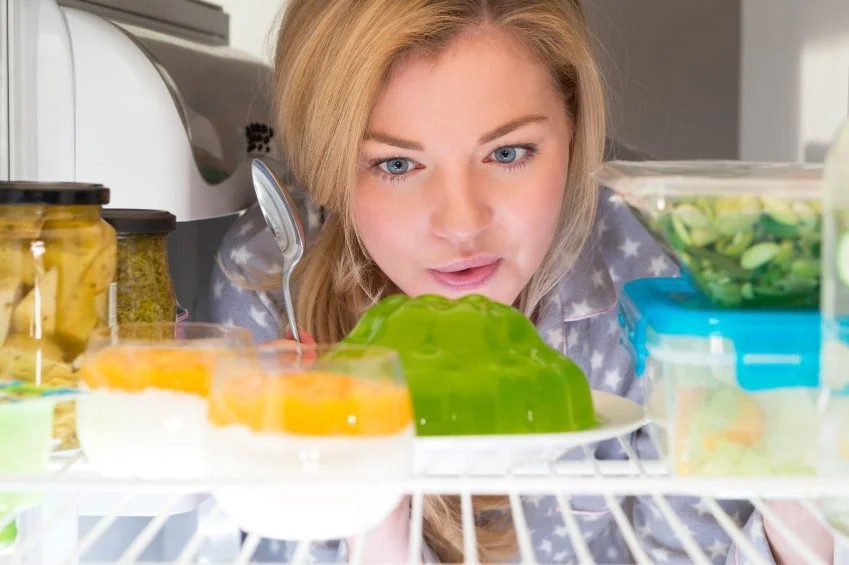Overcoming Cravings: The Ultimate Guide
craving
(n.): an intense, urgent, eager, or abnormal desire or longing; yearning.
Most people experience cravings on a daily basis. At 9 am, that donut looks delectable. At 1 pm, that hot, greasy slice of pizza seems irresistible. At 5 pm, you can’t wait for a glass of wine. At 10 pm, the ice cream is calling your name from the freezer. And so on.
It requires hard work every day to resist these temptations and then we blame ourselves if we succumb to them. Like many people, you probably think that being a slave to your cravings is a sign of weakness. In reality, your cravings may be an indication that your brain’s reward system has been hijacked.
What is the brain’s reward system? It is an intricate network of brain systems and neurotransmitters (brain chemicals) that are critical to human survival. It drives us to seek out the things we need to stay alive and carry on the human race.
However, many things that are not necessarily crucial to our survival also activate the reward system, such as listening to music, having a massage, or watching a good movie. Then there are substances and behaviors that are actually detrimental to our health and well-being that cause the reward system to kick into high gear—cocaine, alcohol, gambling, and yes, even chocolate cake, salty potato chips, and chronic overeating.
There are four primary neurotransmitters that play important roles in your brain’s reward system. Neurotransmitters act as the brain’s chemical messengers, relaying information within the brain. The strength or weakness of each of these neurotransmitters plays an important role in your ability to control your cravings.
BRAIN CHEMICALS INVOLVED WITH CRAVINGS
Dopamine is a feel-good chemical. Whenever we do something enjoyable, it’s like pressing a button in the brain to release a little bit of dopamine to make us feel pleasure. If we push these pleasure buttons too often or too hard, we reduce dopamine’s effectiveness. Eventually, it takes more and more excitement and stimulation to feel anything at all.
Cocaine, methamphetamines, alcohol, nicotine, sugar, and high-fat, high-calorie foods all cause an increase in dopamine that makes these substances highly desirable.
Serotonin is thought of as the happy, anti-worry, flexibility chemical. Many of the current antidepressants work on this neurotransmitter. When serotonin levels are low, people tend to be worried, rigid, inflexible, oppositional and argumentative, and suffer with anxiety, depression, obsessive thinking, or compulsive behaviors.
Serotonin is raised in the brain by its amino acid precursors, l-tryptophan or 5HTP. Simple carbohydrates increase l-tryptophan in the brain, which is why some people can get hooked on cookies, bread, potatoes, and sugar as a way to boost their mood.
GABA, or gamma-aminobutyric acid, is an inhibitory neurotransmitter that calms or helps to relax the brain. If you have suffered an emotional trauma or you are under a lot of stress, GABA may be depleted and your emotional or limbic brain may become excessively active, making you feel anxious, uptight, or sad. This can make you eat in an attempt to calm your limbic brain.
Endorphins are the brain’s own natural pleasure and pain-killing chemicals. They are the body’s own natural morphine or heroin-like substances. These substances are heavily involved in addiction, cravings, and the loss of control.
So if you’ve been told that cravings are “all in your head,” in a sense, it’s true! If you feel like your cravings are running your life, be sure to check out this article with tips on how to deal with your cravings.
Additionally, you may consider trying BrainMD Health’s very own Craving Control, which contains six clinically studied ingredients that complement each other to help manage cravings in the brain, support healthy blood sugar levels and promote a positive mood.
- Veterans Day: One Warrior Shares Some of the Best Ways to Heal from Trauma - November 2, 2023
- Could Your Mood Issues Be Linked to a Pain In the Neck? - October 13, 2023
- What’s At the Root of Your Sciatic Nerve Pain? - September 20, 2023




I have had unexpected medical problems, and my quality of life is half of what it used to be. I don’t know how much longer I will be able to eat, so I do not deprive myself. If it isn’t illegal, immorral, or doesn’t adversely affect others, I am giving into my cravings. I am not recommending this for anyone else, this is solely my decision.